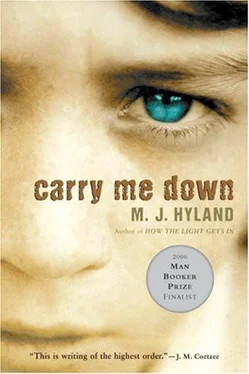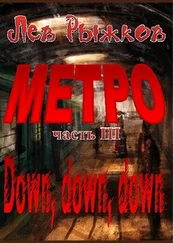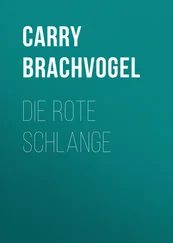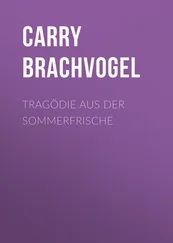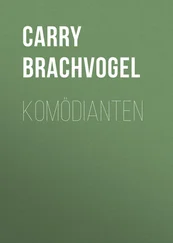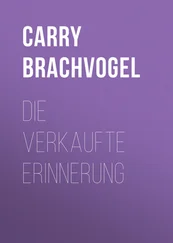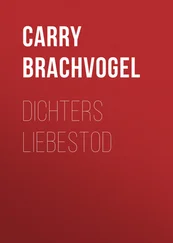The telephone rings and my mother rushes to answer it. ‘They hung up,’ she says.
The telephone rings again. She answers it.
‘They hung up again,’ she says.
The telephone rings one more time.
I answer it. ‘Hello,’ I say.
‘It’s your da. Is your mammy there? Is she all right?’
‘Yes. Mam’s grand. We just had chicken pie and now we’re having some tea and cake.’
‘I’ll be home soon. Can you please tell her that?’
‘OK. Bye-bye.’
I stand by the phone, expecting it to ring again.
‘It was Da,’ I say.
‘Why were you yelling down the phone?’ asks my mother.
‘Because he was breathing so hard. It was like talking to a tractor or something.’
‘He’s probably just hoarse and choked up from all the cigarette smoke in that filthy place,’ says Aunty Evelyn.
I take my piece of cake into the living room.
My father goes missing for two days, and I spend two days believing that he’s in Mountjoy gaol. I have nightmares about him being in a cell with a toilet in the corner and a man with tattoos and a shaved head in the bunk above him.
He returns home on Thursday morning while I’m down in the bookshop with Aunty Evelyn. He is wearing a new brown coat with furry black cuffs and collar and he has the beginning of a moustache. ‘Good news,’ he says, as he reaches out for me with his cold red hands, ‘we’ve got ourselves a new home.’
‘Where?’ I ask.
‘Ballymun. Emergency housing high up on the twelfth floor of a fifteen-storey tower,’ he says.
‘The twelfth floor!’ I say. ‘We’ll be living in a skyscraper?’
‘Yes. And a swimming pool is being built and should be ready in a few weeks. And from your bedroom window you can watch the jumbo jets flying overhead on their way to America.’
‘When are we going?’
‘We move in first thing tomorrow morning.’
Aunty Evelyn turns the sign on the door that says Back in 5 Minutes.
‘We’d better get moving,’ she says. ‘Let’s go up and find Helen.’
We go upstairs and find my mother sitting in a straight chair under the window in the living room. The television isn’t on and she isn’t doing anything with her hands.
‘You’ve got a flat, Helen! A brand new Corporation flat and you can move in tomorrow,’ says Aunty Evelyn. ‘And you can take the furniture from the junk room upstairs and the beds in the spare room.’
My father stands by the fire and plays with a box of matches. My mother nods but says nothing.
‘Some of the neighbours are sure to donate a few odds and ends. But we don’t have much time. I’ll start the door-knocking right now.’
My mother frowns.
Aunty Evelyn gets up from the settee and goes to her. She holds her hand out to my mother, as though reaching out to help a cripple to stand. But my mother doesn’t take her sister’s hand. She thanks her and leaves the room.
‘Don’t go chasing her,’ says my father.
I stay and turn on the television.
At eight o’clock in the morning, I stand with the blue suitcase at my feet and watch my father and my uncles load a dirty truck with furniture. My mother helps by giving directions and by putting small things on the trolley. I offer to help but she tells me to sit and wait by my suitcase in case errands need to be run. ‘Like what?’ I ask.
‘Like fetching somebody a cup of tea or a glass of water when they need it.’
I sit on the kerb with a packet of plasters. I put one on below my knee, leave it for a few minutes, and then peel it off again. The pain is good when the plaster is ripped away and I like the way it pulls at the hairs and leaves a clear, soft patch of skin.
Uncle Gerald sees what I am doing. He wags his finger at me, making a cross face. I smile and wag my finger back and, as usual, he doesn’t know what to do. He stands back and looks at me, his hands by his side, and then he turns and goes back to the truck and moves a chest of drawers a few inches for no good reason. Sometimes it is as though Uncle Gerald doesn’t take life very seriously; he tries things out, sees that nobody has noticed him, changes course, does something else, and seems not to care about the difference.
A group of neighbours has gathered. There are five women and two men. They stand on the footpath in front of number 17, in a mob. The way they stand close together makes it seem that they are all from the same family. They stare as though they have only one mind between them; when one stares at me, they all stare at me, and when one stares at my mother, they all stare at my mother. When one watches my Uncle Jack light up a cigarette, they all watch.
One of the women holds a wooden spoon with cold porridge glued to its end, and another holds a dishrag. They say they have come to wish us bon voyage , but it is plain that they have come to see what a ruined family looks like.
My mother looks across at them and waves, and suddenly they move in towards the door of the truck and surround her. She steps back to stop them getting in the way.
‘I hear there is central heating in every flat,’ says a thin woman with red hair.
‘And there’ll be a swimming pool in a wee while,’ says the one with the wooden spoon.
Uncle Jack and Uncle Tony are in the back of the truck with the furniture and I am happy to sit in the cab between my father and mother. I like being up high and my father’s arms look strong when he turns the steering wheel to get us around tight corners.
We drive in heavy traffic, and there’s a good view of all of the shops in North Circular Road. I look down at the children on their way to school and feel free. I hold my mother’s hand.
But, as we get closer to Ballymun, my mood changes. The streets here are narrow and the gutters are full of rubbish. The houses are small and grey and nobody has painted the doors or windowsills. And as we pull into the car park at the base of one of the Ballymun high-rise towers, it is clear that nothing good can happen here.
My father jumps out of the cab and I climb down after him. I feel heavy and tired. I look around at the seven towers and the dozens of smaller blocks of flats that surround us, the busy road at the edge of the car park, the big school across the busy road, and the roundabout.
My mother stays in her seat, her hands on her lap. My father lets Uncle Jack and Uncle Tony out of the back of the truck and then puts his hand on my shoulder.
‘Each tower is named after the men who signed the proclamation of the Irish Republic in 1916,’ he says.
‘Which one is ours?’ I ask.
‘Plunkett,’ he says. ‘That one there. The one in the middle.’
It’s not possible to see all seven towers in one glance. There are too many and they make it dark as night. To see them all, it is necessary to turn in a full circle. How can they be new when they are so soiled and dirty? They are like rotted teeth, decayed and brown and stained with tar, teeth pulled from an awful and dirty giant.
‘How will we get everything up the stairs?’ I ask my father.
‘There are lifts, stupid.’
We go up to our new home. Unlike the dirty lifts and the dirty stairwell and the dirty corridors, the walls of our flat are white and clean and once inside there is no smell of urine or wet cigarette butts.
But it’s a small flat with everything in it small: a tiny kitchen and a tiny living room with just enough room for a settee, the television and a few chairs. And the toilet is the smallest I’ve ever seen, with a bath only fit for a midget. And there are two small bedrooms, both with windows that can’t be opened and which look down twelve floors to the car park and tarmac below.
Like everybody else who lives in the towers, we must send our rubbish down a chute, and the chute is at the top of the stairs, near my bedroom window.
Читать дальше
